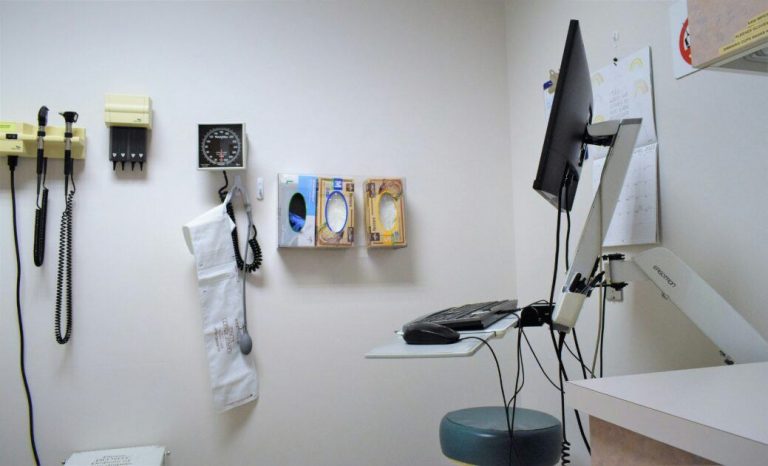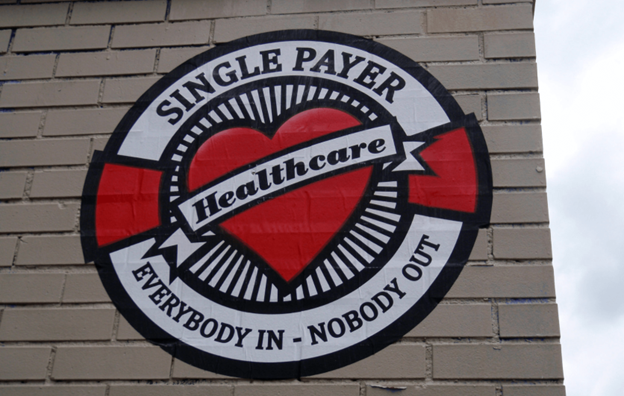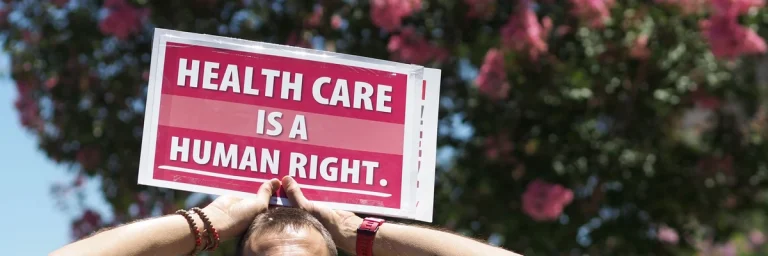Enhance The Subsidies And Let Insurance Industry Feed At Federal Trough?
It’s helpful to think of the U.S. health care system like a pie made up of different slices (Figure). The largest (blue) slice is employer health insurance, which covers 160 million workers and their dependents; individual non-group insurance (in orange) provides 24 million individuals and their families with patchy insurance (including the enhanced subsidies); Medicaid (in yellow) covers 65 million poor and low-income adults, children, and seniors; Medicare (in red) pays for medical care for 60 million seniors and people with disabilities; the Veteran’s Health Administration (in bright green) provides the best socialized medicine in the nation to 9.1 million qualifying veterans; and that leaves the rest, approximately 28 million Americans, in the (purple) slice of the uninsured.















